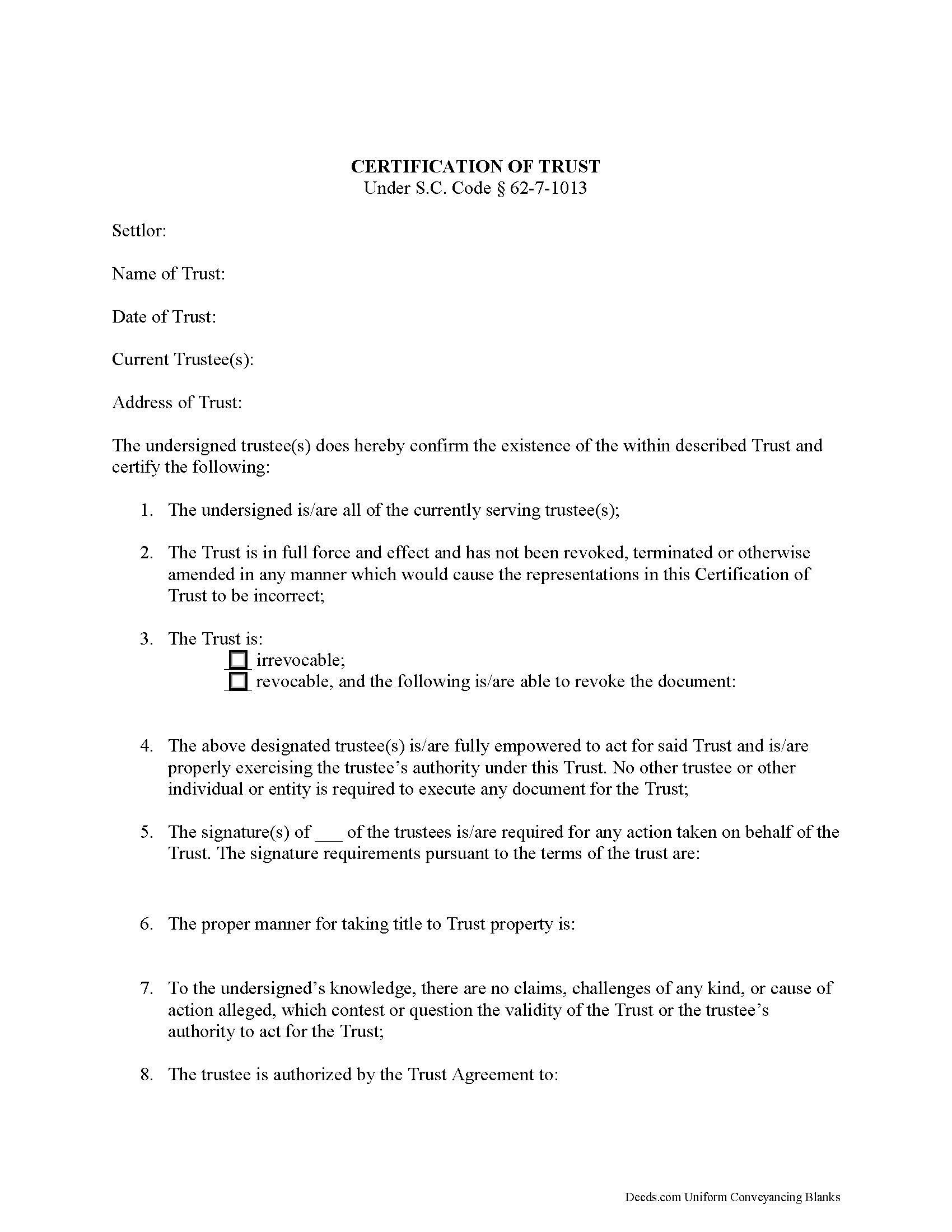Download South Carolina Certificate of Trust Legal Forms

South Carolina Certificate of Trust Overview

South Carolina Certification of Trust
The certification of trust is codified at S.C. Code 62-7-1013 as part of the South Carolina Trust Code. A certificate of trust presents a summary of the trust to which it pertains, and verifies a trust's existence and the trustee's authority to act on behalf of the trust. A trustee may present the document in lieu of the trust instrument any person who is not a trust beneficiary. This allows the trustee to maintain the privacy of the settlor's estate plans by presenting only necessary information about the trust to parties outside the trust arrangement.
The format of the South Carolina certificate presents the most basic information about the trust first, including the name of the trust and date of execution of the trust instrument, and the name of each settlor and the acting trustee's name and address.
The certificate then presents certified statements, made by the trustees, that all currently serving trustees have executed and acknowledged the instrument, and that the trust "has not been revoked, modified, or amended in any manner that would cause the representations contained in the certification of trust to be incorrect" ( 62-4-1013(7)(c)).
Information about the trust's ability to be revoked, and the identity of any person who may revoke the trust pursuant to the terms of the trust instrument comes next, and information regarding the execution of trust documents follows. For trusts with co-trustees, the certificate shows how many trustees are required to execute trustee powers and enumerates the signature requirements established in the trust.
The certificate also requires the name by which the trust is to hold title to assets, typically by way of the trustee (e.g. "John Doe as Trustee of the Doe Revocable Trust Dated..."). In addition, the certificate presents the exact powers of the trustee to enter the transaction for which the certificate is presented, and may make a reference to the powers set forth in the South Carolina Trust Code.
Persons doing business with trustees have certain protections under the statutes. Recipients of a certification of trust, for example, "may assume without inquiry the existence of the facts contained in the certification" and "may enforce the transaction against the trust property as if the representations contained in the certification were correct" ( 62-4-1013(7)(f),(g)). Recipients may request that a trustee provide copies of excerpts from the trust instrument which designate the trustee and present the trustee's relevant powers, in addition to the certificate. Requesting the entire trust instrument opens them up to liabilities, however ( 62-4-1013(7)(h)).
Where a certification of trust is presented for transactions involving real property, the document should meet standards for recording documents in the State of South Carolina. The certificate must be acknowledged by the acting trustees and witnesses in the presence of a Notary Public before it is recorded in the county where the subject real property is situated.
Consult a lawyer with questions regarding certifications of trust in South Carolina.
(South Carolina COT Package includes form, guidelines, and completed example)